Grief can be debilitating, be it the loss of a friend, a parent, or even a pet. But it can be doubly painful to see your own spouse die. After all, we share everything with them, be it our tears and smiles, our inadequacies, or our little wins. And if you find yourself uttering to yourself, “My husband died and I want him back” or “I can’t get over my husband’s death”, don’t try to make yourself understand the inevitability of death. It won’t work.
In many cases, we are prepared for the loss, for instance, when the person in question suffers from a terminal illness, such as cancer. But grief can strike you like a bolt of thunder when the death is sudden. A study even explored how the grief of losing a partner can cause “emotional and practical problems” in older adults, especially those suffering from health issues.
So, wondering how to deal with grief of losing a spouse? How difficult is it to get back to normal life after such a loss? Do you ever get over the loss of a spouse, at all? Read on, as we help you unearth the intricacies of the bereavement that follows the death of a husband, with some actionable tips to manage such grief from our very own relationship counselor Dhriti Bhavsar (M.Sc, Clinical Psychology), who specializes in relationship, breakup, and LGBTQ counseling.
My Husband Died And I Want Him Back — A Story Of Grief And Longing
Table of Contents
“I can’t get over my husband’s death.” Do you still hear yourself saying this years or months after your spouse’s death? I’m sure, this must’ve left you wondering how to get past your husband’s death. And the worst part is, unless one has felt the pangs of losing a partner to death, they won’t be able to feel the loss and the pain that follows. We will narrate to you one such tale of loss. It’s a long story and one that might make you cry too.
Related Reading: What I Regret After The Death Of My Spouse
This real-life story of grief is about Nancy, a friend of mine from Colorado. A 40-year-old school teacher, and now a widowed mother, Nancy lost her husband of 15 years, George, to an unexpected heart attack. The couple had two young sons, who were barely old enough to understand the gravity of losing their father.
Nancy was in shock and operated on autopilot for one week after the tragic incident. The grief and loss had seemingly made her numb, so much so that she had only cried once, in private, after her husband’s funeral, when she was alone in their bed. When I met her shortly after George’s death, she could only bring herself to say, “My husband died and I want him back” and “My husband died in front of me. I still can’t believe this.”
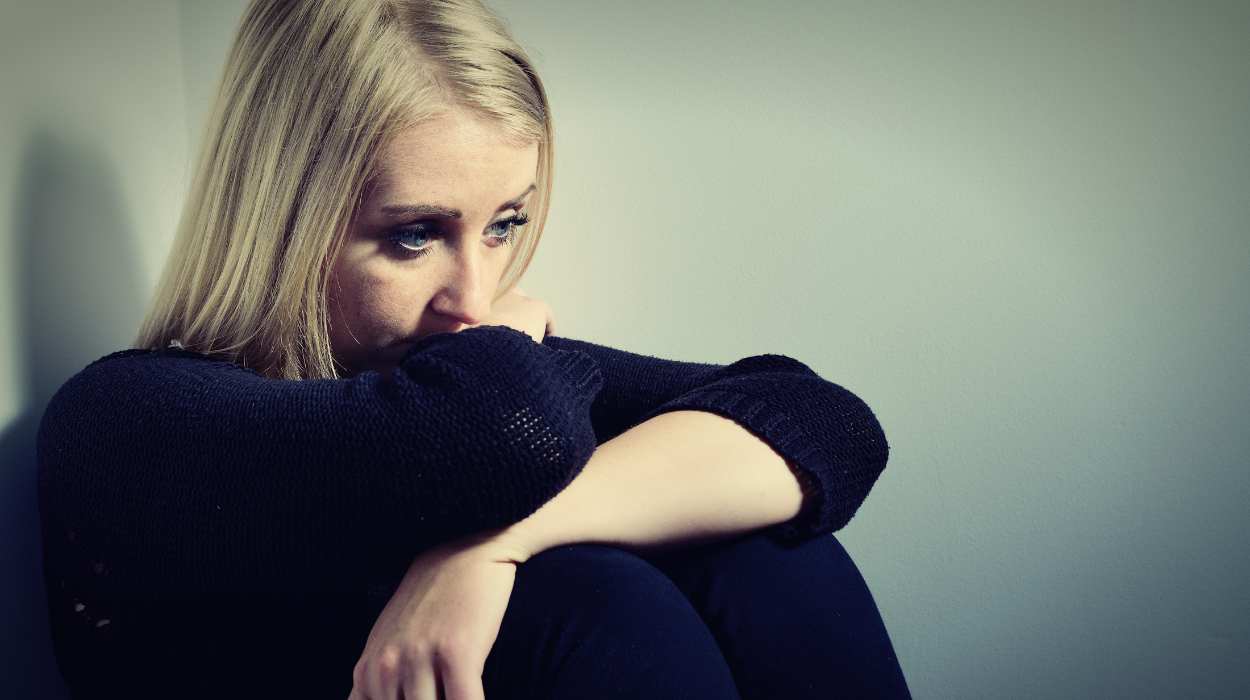
She felt she had to stay strong for her two sons. She also realized that all her husband’s responsibilities were now hers. For a few weeks, she went through life as if she was simply going through the motions: eating when it was time to eat, going to her room at night, and lying on her bed, unable to sleep. She was breathing and living only for the sake of her sons and her duties. Eventually, her body could no longer keep up. One fine day, she crashed, and following this, she started keeping ill.
It wasn’t until she was looking at a few old pictures of her husband on her phone one night that reality finally hit her, and once she started crying, she couldn’t stop. She didn’t want to keep going anymore and couldn’t keep up appearances.
She soon encountered depression and was unable to do much without being completely exhausted. She lost her appetite and sleep. She also lost weight as a result. Everything felt too meaningless. It was as though she had lost her purpose. I remember her saying during a call during this phase, “I am so lost without George. I miss my husband so much since he died. I feel like a zombie and don’t have the will to go out, not even to get groceries. At times, I feel as if my limbs are numb. I cry every day for my deceased husband.”
Related Reading: Remarriage After Death Of Spouse: A Heartwarming Journey Of A Woman
After a month of being in this state, Nancy’s family members sought medical and psychological help for her. Her sons gave her the courage to go on, and they adopted a dog, who brought her some much-needed comfort. Soon, she recovered enough to function again. But she would occasionally slip back into depression. She would also often curse God. She would be extremely irritable on certain days, when she would keep snapping at everyone around her.
After about half a year of professional help, and support from her family, Nancy finally felt like herself again. While occasional symptoms of depression popped up every now and then, things were manageable. Nancy’s tale shows us that grief is not something we grow out of, but around.
How To Deal With Grief Of Losing a Spouse — Our Expert Explains
Now that we have seen how powerful grief at the death of a husband or wife can be and how it can crumble your will to function in society or go about with daily activities, we’ll look at how grief can be managed or dealt with. But before that, we’ll find out if grief can really be dissected and looked at as a problem that can be managed.
Most psychological experts, including Dhriti, believe there are 5 stages of grief or bereavement. Though some experts believe there are 7, popular consensus states there are 5.
Related Reading: First Relationship After Being Widowed – 18 Dos And Don’ts
The stages of grief, again, are not always linear. Neither are they final and limited, meaning that people often go back and forth between stages. There are no fixed time limits associated with any of the stages either. However, the diagnostic manuals for mental disorders DSM 5 TR and ICD 10 state that any bereavement that lasts longer than 12 months is clinically significant and a diagnostic criterion for persistent complex bereavement disorder.
Stages of grief
So, what are the 5 stages of grief? Let’s find out:
- Denial: This is the state where people find it difficult to face the reality of their loss, especially if it’s due to a sudden death. Dhriti states, “The drastic change and the pain of acceptance is too much for them to bear. Many become emotionally numb, start feeling empty, or dissociate from their surroundings (derealization). Many feel the person is still with them, hear their voice, or feel their presence.” Some believe the state of “shock” exists before denial, but most consider shock as part of denial
- Anger: Death is cruel and unfair, and anger is a perfectly normal response to this. This anger could be directed at higher powers, toward the dead person, toward other loved ones, and even toward oneself. You may feel, “My husband passed away without any warning.” Dhriti adds, “Such anger is usually coupled with regret at all the things one must’ve done wrong, all the love they did not get to share, and so on. People often become irritable, snarky and sensitive at this stage.”
Related Reading: 7 Stages Of Grief After A Breakup: Tips To Move On
- Bargaining: In this stage, one is preoccupied with the “what ifs”. Dhriti adds, “They keep wondering what they could have done differently to prevent this. They continue to avoid their reality, and use the past as an escape route instead.”
- Depression: This is the stage of intense sadness and pain. The depth of grief is typically felt here and is often unlike any other pain you have felt before. Many describe grief as a hollow aching feeling that never goes away. Signs of depression are evident, and if not cared for properly, may slip into depression easily. This is when the person may keep saying, “My husband died and I am so lonely.”
- Acceptance: The final stage of grief is the most peaceful by far but still painful. Dhriti says, “This stage is all about coming to terms with reality and finally being able to face the present and the future, one in which the deceased loved one doesn’t exist.”
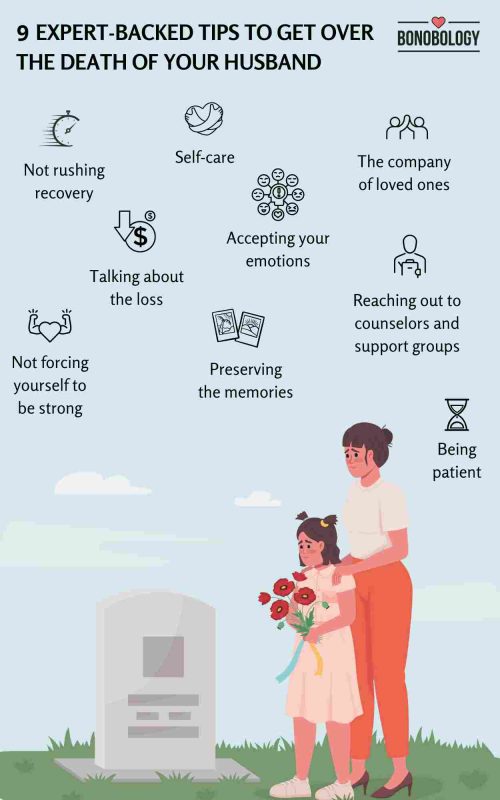
Now that we know how grief functions, it’s important to chalk out a plan to deal with grief, instead of letting it get the better of you. As grief is not linear and doesn’t follow a strict time frame, there is no ‘one size fits all’ solution to dealing with grief. Yet, there are a few tried and tested tips that may work for most people grieving the loss of a loved one. Our expert Dhriti has listed 9 tips below:
1. Indulge in self-care
Wondering how to get past your husband’s death? The first step to dealing with intense grief is to take care of oneself, physically and mentally. Instead of repeating to themselves, “My husband died and I am so lonely,” people should focus on getting back to a routine and splurge on self-care and well-being.
Dhriti adds, “One should never skip meals. You should maintain a healthy diet even if you don’t want to and even if it feels mechanical. It’s crucial to remember that life does not stop for anyone and the living cannot afford to join the dead. Yes, your husband passed, but you still remain here in this world — alive and kicking.”
Related Reading: Second Marriage After 40 – What to Expect
2. Surround yourself with loved ones
One of the best ways to deal with the pain of your husband dying is to share it with a trusted group of friends. Remember never to isolate yourself during such a loss. Talk to them, even if you are numb and can hardly utter anything but, “My husband died and I want him back.”
Dhriti adds, “There is comfort in sharing grief, and community is the greatest healing resource, even if all you’re saying is “My husband passed away.” Moreover, kind words can work like magic in times such as these.” Love, care, and compassion from friends and loved ones are the 3 things widows need the most during this time. It’s also believed that a good support network can sometimes prevent suicidal tendencies too.
3. Take it slow
“I cry everyday for my deceased husband” — it’s not uncommon for a widow to be in this state months after they have lost their spouse. One should keep in mind the fact that healing from death is a long journey and one can’t heal overnight, no matter how strong one is. Just getting through the day may be an achievement. One need not immediately join a gym or take up a new hobby to enjoy life and forget the grief of a sudden death.
Related Reading: A Beautiful Love Story: She Is A Widow In Love With A Married Man
Dhriti feels, “Taking everything one day at a time and being kind to oneself is absolutely necessary to cope with such a loss. It’s okay to focus on the next step in front of you, instead of pining “I lost my husband” all the time or making a long-term healing plan.”
4. Accept your emotions
Instead of going numb and shoving your emotions beneath the carpet, accept them, whatever they may be. This can prevent further mental health issues. So, you can be angry, irritable, or terribly sad. You may lash out or cry inconsolably. You may scream out, “My husband died suddenly and unexpectedly, and I’m not okay with it!”, in the middle of the night.
Dhriti adds, “These emotions are all natural, valid, and have their own purpose. Experiencing each emotion fully helps you heal from your loss. After all, you need time to tell yourself “My husband is dead” without being teary-eyed. The grieving process is unique for everyone.”
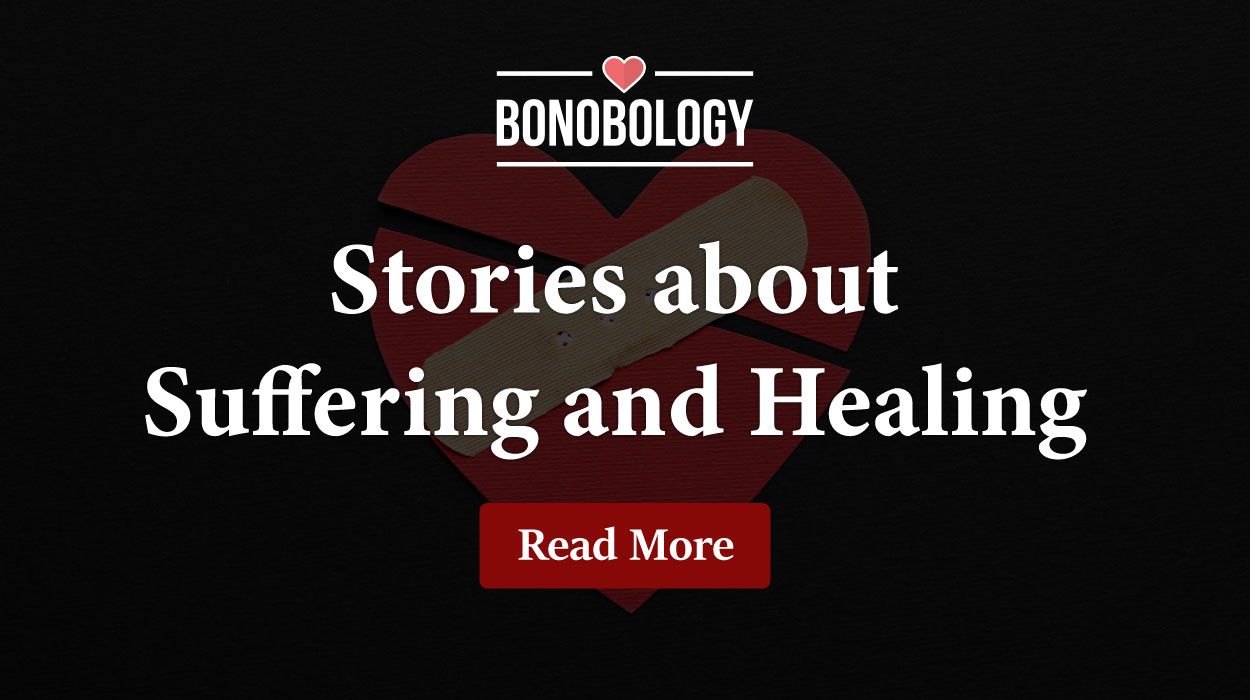
5. Talk about your pain
Talking about the person you have lost and remembering them helps a lot in the grieving process and is one of the best ways to deal with the depression that hits you at this stage. And by ‘talking’, we don’t just mean speaking about the emotional pain of your husband dying. Share it on social media posts, write journals, create blogs in memory of your loved one — do whatever it takes, even if you’re just saying, “My husband died and I want him back.”
Dhriti feels, “Grief can be isolating, and speaking it out loud about it, even if it’s just a “I miss my deceased husband” post on social media, brings about catharsis. It also helps you connect with others around us.”
Related Reading: What To Write In A Sympathy Card When Someone Loses Her Husband
6. Preserve the memories
Don’t throw away or hide things that remind you of your lost loved one. Instead of being caught in the loop of, “My husband died and I want him back”, preserve the memories — the photos, the gifts, and the memorabilia — everything that reminds you of your deceased loved one.
A neighbor of mine, 50-year-old Brenda, whose husband died of a heart attack at home, said “My husband died in front of me, and it was painful to let him go. My world changed so rapidly after I lost my husband. Initially, I was so broken, I even had suicidal tendencies. All I have now are his memories and the little things he used to say, all tucked in my brain. I have a little shrine of sorts in our bedroom, with all his stuff and memories of his early days. Oh, how I miss my darling husband!” Dhriti adds, “Preserving the memories helps you acknowledge the depth of your loss and come to terms with it, over time.”
7. Don’t always be strong
Forcing yourself to be strong all the time while grieving a loss isn’t the right way to go. Even if you keep saying, “I still love my dead husband”, months or even years after his demise, you aren’t being weak, you are being human. Such love is natural, and one shouldn’t force oneself to forget the loss immediately.
Related Reading: 21 Tips For Dating A Widower
Dhriti feels, “There is strength in acknowledging the pain of your husband dying and admitting that you need to stop and rest for a while. You don’t owe anyone strength.”
8. Be patient with yourself
Patience is a virtue, especially when you are experiencing the pain of losing a loved one and often uttering, “My husband died and I want him back.” So, be patient with yourself and your pain. A coworker, Anna, who lost her beloved husband to a car crash days before his 31st birthday said this to me after a couple of years of the incident: “My husband died suddenly and unexpectedly. We had so much life ahead of us, and he was such a wonderful man. While coping with the grief, I once felt like ending my life too. But then, I was patient with the healing journey. Now, it doesn’t hurt that much, though not a single day goes by without me missing him and I won’t forget him till my last breath.”
Dhriti adds, “Understand that you will take some time to be okay and settle into a new life and make new memories and that the pain of your husband dying may not fade instantly. Instead, with time, you will learn to live with that pain and eventually find happiness.”
9. Seek and accept professional help from counselors and support groups
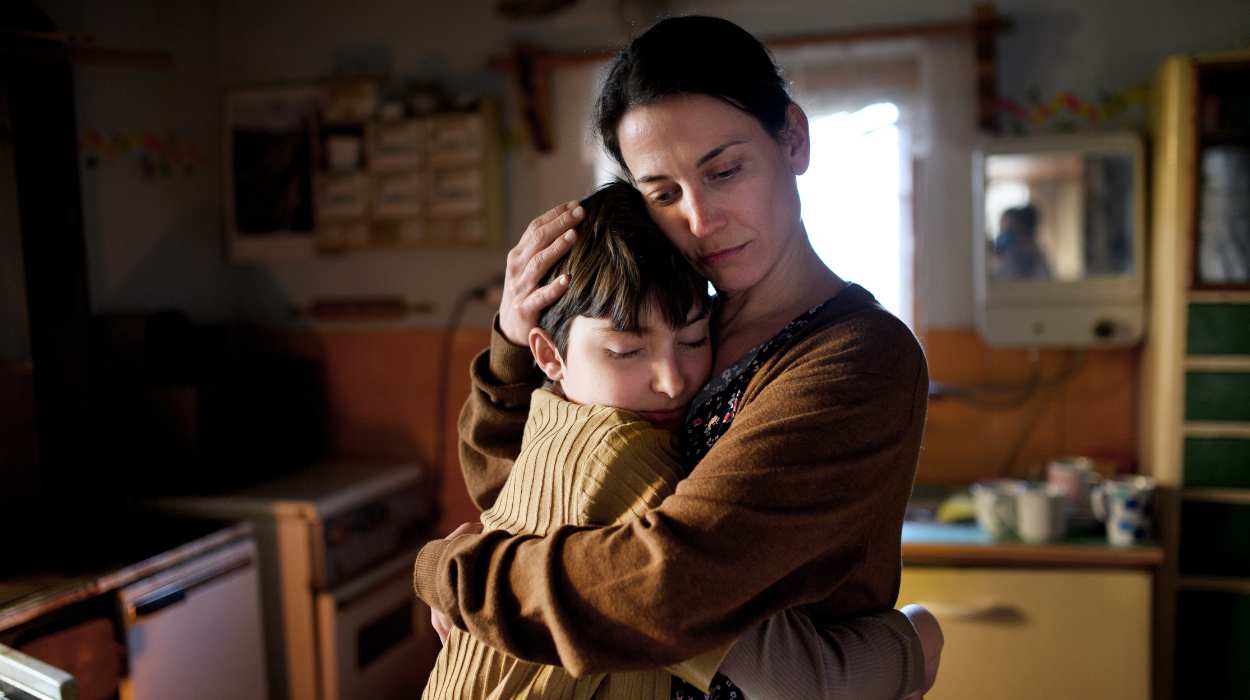
Dhriti says, “In case you feel the grief is too much for you to handle on your own and keep telling yourself, “I miss my deceased husband”, day in and day out, you should seek professional counseling or find a support group closest to you.” There’s so much more to life than constantly telling yourself, “My husband died and I feel lost.” There are dedicated support groups that help people deal with the devastating loss of a life partner, such as:
- Widows Connection: For an annual fee, you can avail of not just emotional support from fellow widows, but legal and financial support too
- The Sisterhood of Widows: You can join this group for free, and it manages several groups on social media too
- The National Widowers Organization: This is a free support group for men dealing with the loss of a spouse and organizes regular meet-ups
- Soaring Spirits International Widowed Village: This is a free bereavement group that offers various in-person events to attend. It also has a pen-pal program
Key Pointers
- Losing a life partner to death hits hard, as it’s like losing a best friend or your other half. So, it’s not unnatural for someone to utter “My husband died and I feel lost” months after losing their spouse
- There are 5 stages of grief, and they aren’t linear. They are denial, anger, bargaining, depression, and acceptance
- Do you ever get over the loss of a spouse? Yes, you can, but healing from grief is not a standard process for all and may differ from person to person
- A few things you can do to heal from the grief of losing a spouse are: indulge in self-care, talk about the grief, and reach out to counselors or find a support group
I hope you now have a clear idea on how to get past your husband’s death or deal with the “I still love my dead husband” feeling. One needs to understand that the pain of losing a spouse can break a person’s spirit, so much so that they may need to detach themselves from the world for a while to figure things out. After all, as author Mitch Albom writes in Tuesdays with Morrie, “Death ends a life, not a relationship.”
But do you ever get over the loss of a spouse? Well, yes. The healing process may be long, or short, depending on the person’s will power and zeal for life. But life goes on after death, even if it’s the death of your favorite person — the love of your life. And there will come a time when you will utter the words, “My husband is dead”, and accept it without tears.
FAQs
“I miss my husband so much since he died” – do these words sound familiar? Well, losing a spouse is like losing your best friend and your soulmate at once. When they’re gone, it’s like a part of you is dead too. You remember them at every step of your daily life, when you’re cooking, cleaning, or watching TV. Their favorite shows, favorite restaurants, trophies, travel photos, and clothes – everything reminds them of you, and that makes it all the more painful.
There is no ‘one size fits all’ solution to help you with the grieving process after losing your husband. However, there are a few tried and tested tips that work for most. Apart from taking care of yourself, you need to talk about your grief with your trusted circle of friends and loved ones. Remember to let it all out once in a while, be it through tears or angry outbursts. Seek the help of counselors and support groups too.
Your contribution does not constitute a charitable donation. It will allow Bonobology to continue bringing you new and up-to-date information in our pursuit of helping anyone in the world to learn how to do anything.



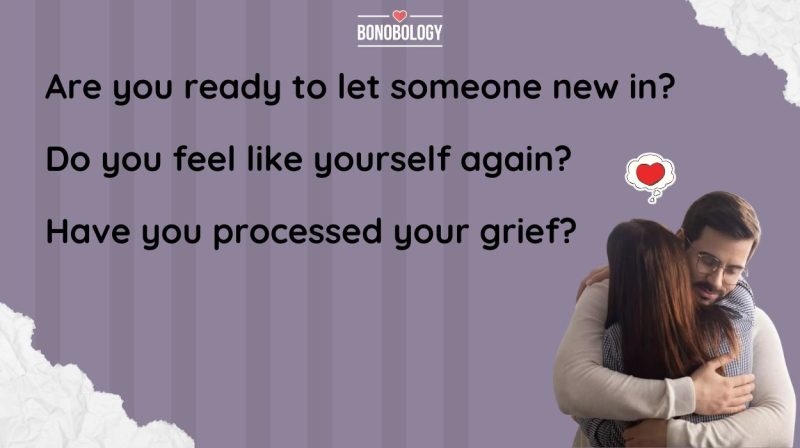
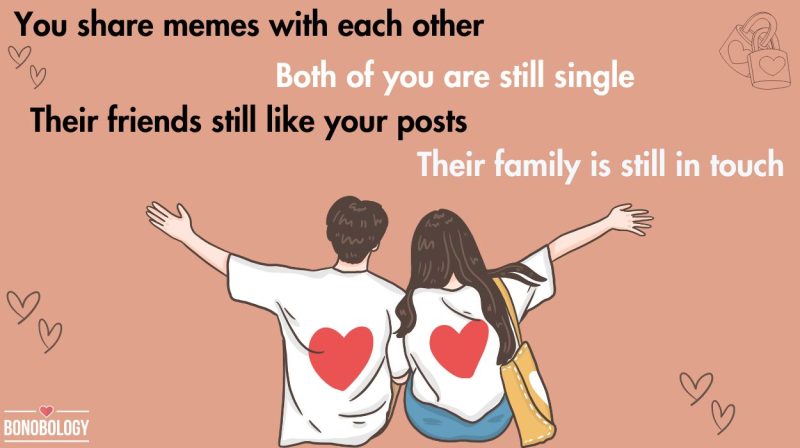













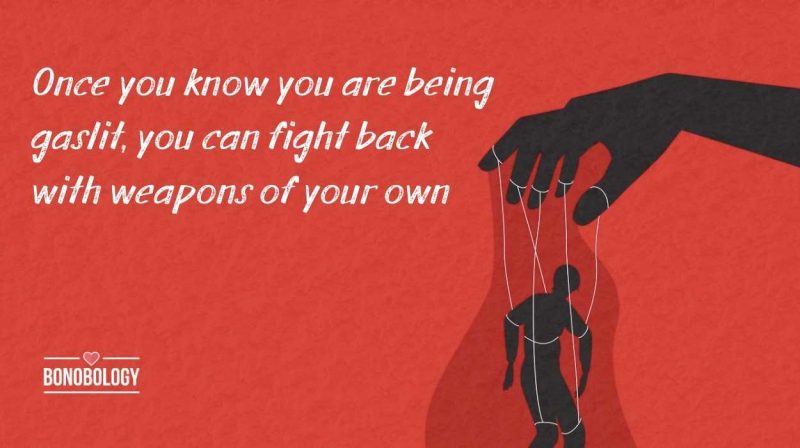

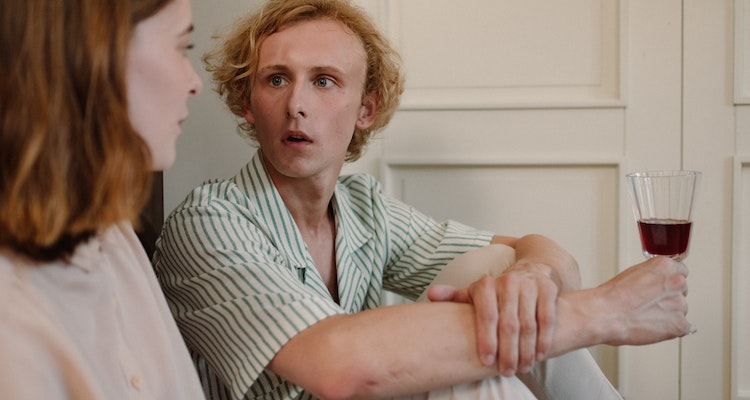

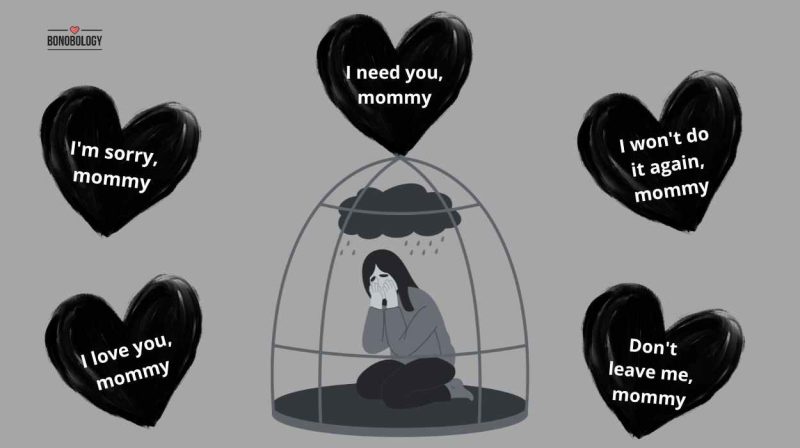
Helpful;; REAL URGENTE HECHIZO EFECTIVO PARA AYUDAR A RECUPERAR A UN EX AMANTE Y SALVAR EL MATRIMONIO Hola a todos, mi nombre es Rosalba y estoy muy abrumada de alegría, todo gracias al Dr. GURU. Mi esposo me dejó por otra mujer hace unos años y estaba muy devastada porque nunca le hice nada malo, me quedé con mis dos hijos y un trabajo que paga poco. Casi me estaba rindiendo hasta que vi un testimonio en línea sobre el Dr. GURU sobre cómo ha ayudado a mucha gente, así que lo contacté sorprendentemente 24 horas después de que hice lo que el médico me pidió que hiciera, mi esposo regresó al día siguiente del hechizo rogándome que lo perdonara y prometió nunca irse. Mi esposo regresó hace 6 meses y nunca hemos tenido ningún problema, me alegro de no haber dudado del Dr. GURU. Ahora estoy segura de que él también puede resolver cualquier problema con un alivio rápido. También puede contactarlo para obtener ayuda ahora. Correo electrónico: saguruu087@gmail.com